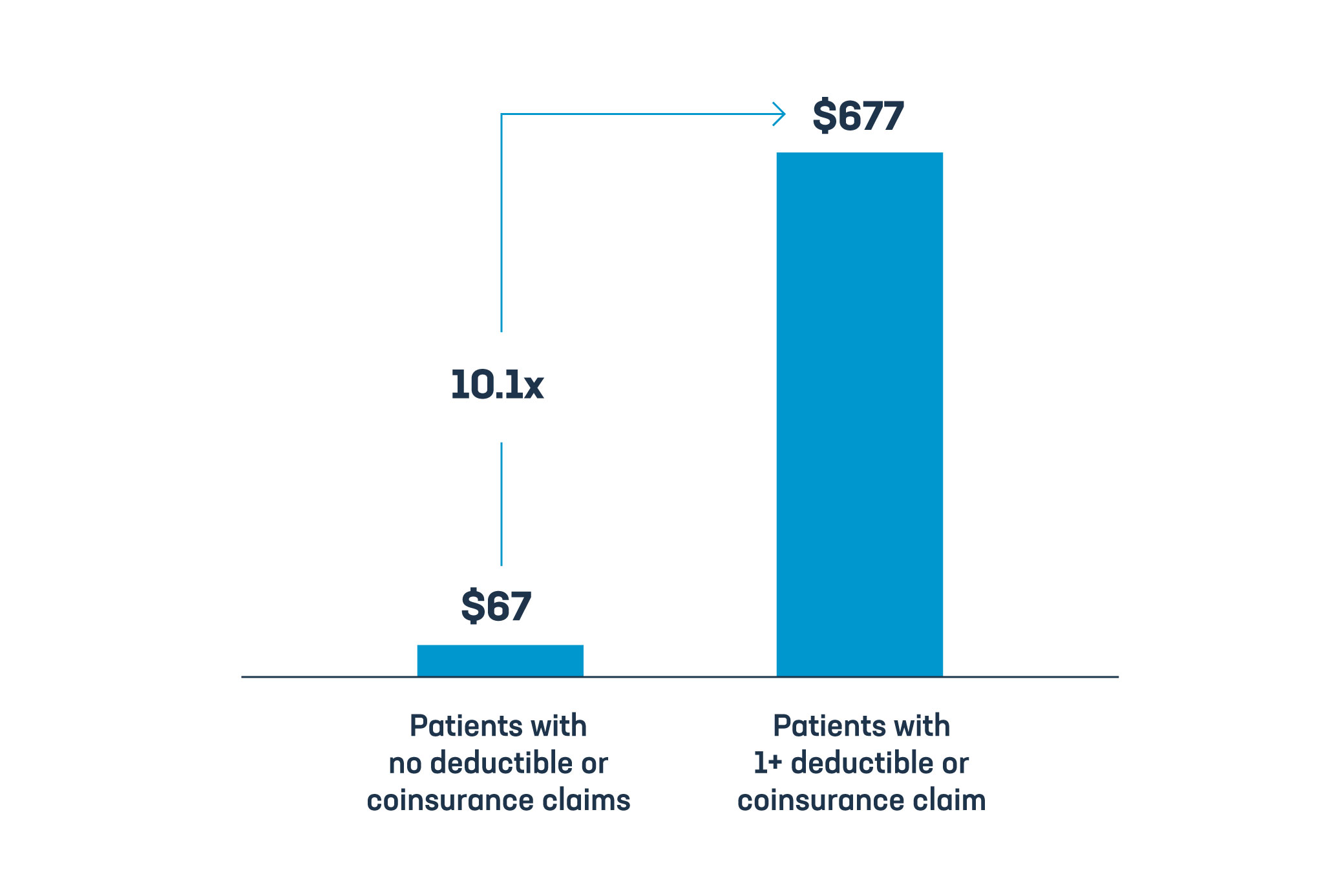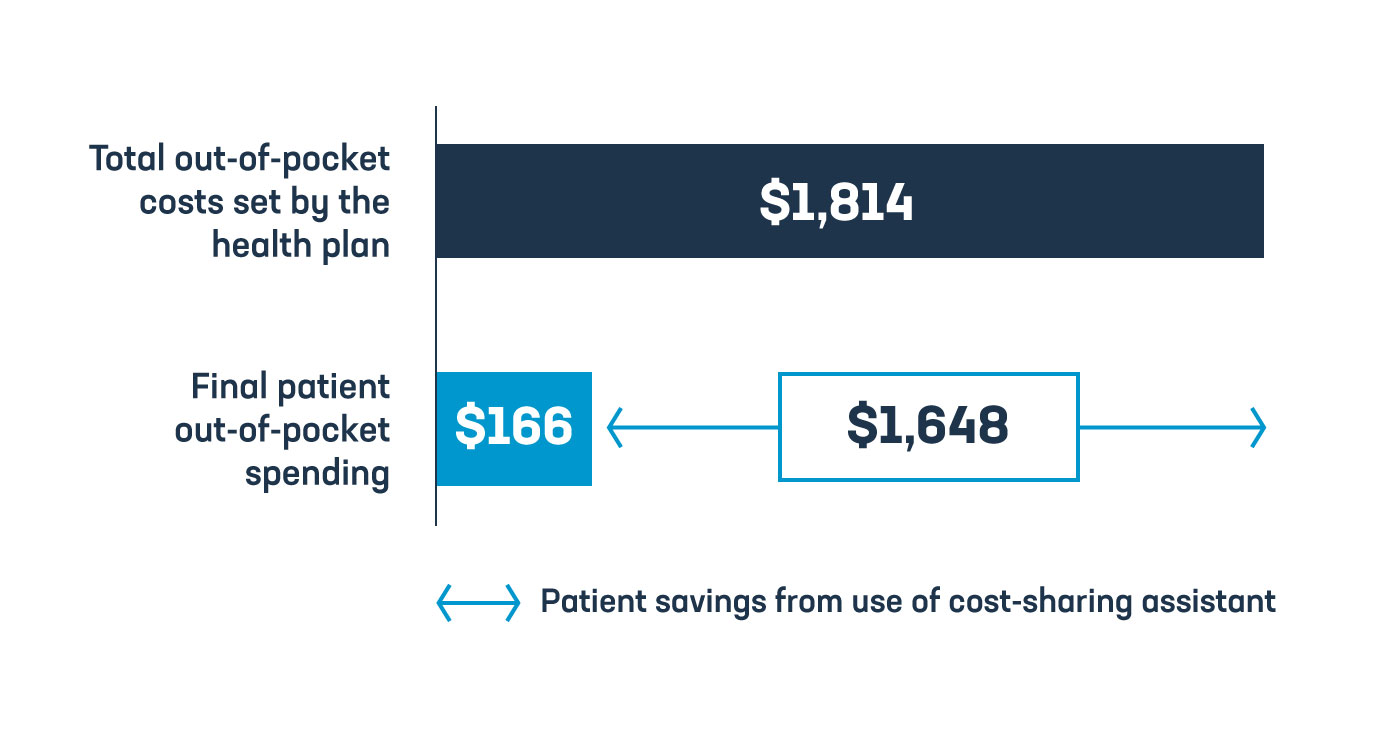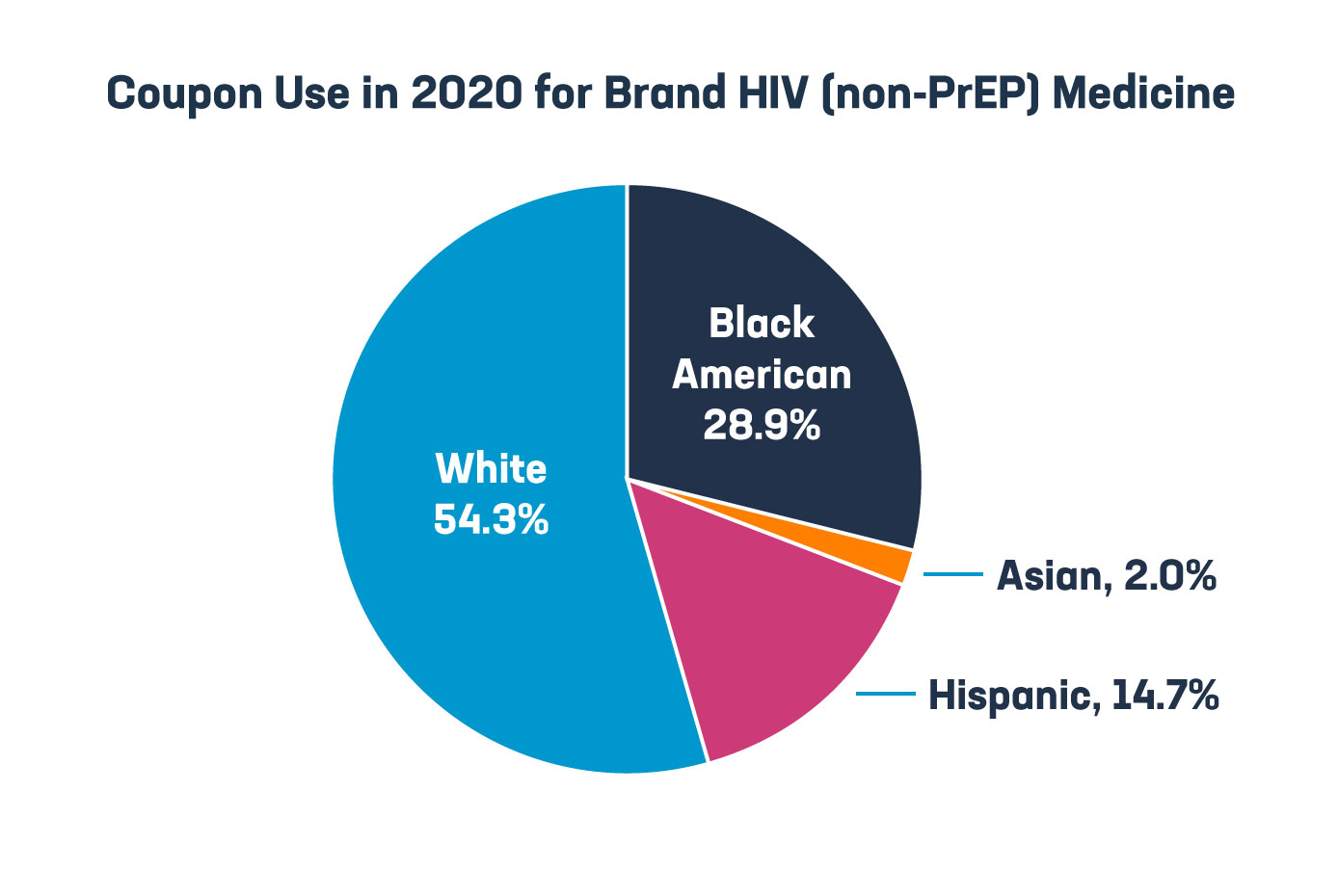Making coupons count for patients with HIV
Patient assistance would rarely be needed if insurers provided adequate coverage for medicines.

Making coupons count for patients with HIV.
Patient assistance would rarely be needed if insurers provided adequate coverage for medicines.

Making coupons count for patients with HIV.
Despite having insurance, too many patients with HIV face high out-of-pocket costs for brand medicines. This is largely driven by insurer-imposed barriers that shift the cost of life-saving care onto patients.
Patients with deductibles and coinsurance taking brand HIV medicines paid 10 times more out of pocket in 2019, on average, compared to patients with only fixed copays.

Manufacturers and others have stepped forward to assist patients with programs like cost-sharing assistance, or copay coupons. This patient assistance helps address the inadequate coverage insurers provide. For patients taking brand HIV medicines, their average out-of-pocket costs would have been 11 times higher in 2019 without this cost-sharing assistance.

Unfortunately, insurers have devised schemes that put barriers between patients and the assistance they need by barring patient assistance from counting toward deductibles and out-of-pocket maximums. These schemes – known as accumulator adjustment programs – make it more likely that patients will face higher costs and abandon a prescription at the pharmacy.
This can exacerbate existing health disparities. For instance, new research found nearly half of patients using coupons to access their brand HIV medicine are people of color.

Patient assistance would rarely be needed if insurers provided adequate coverage for medicines. Policymakers should tell insurers to stop blocking patients from paying lower out-of-pocket costs by making coupons count and sharing the savings with patients at the pharmacy.
Learn more at PhRMA.org/Cost.